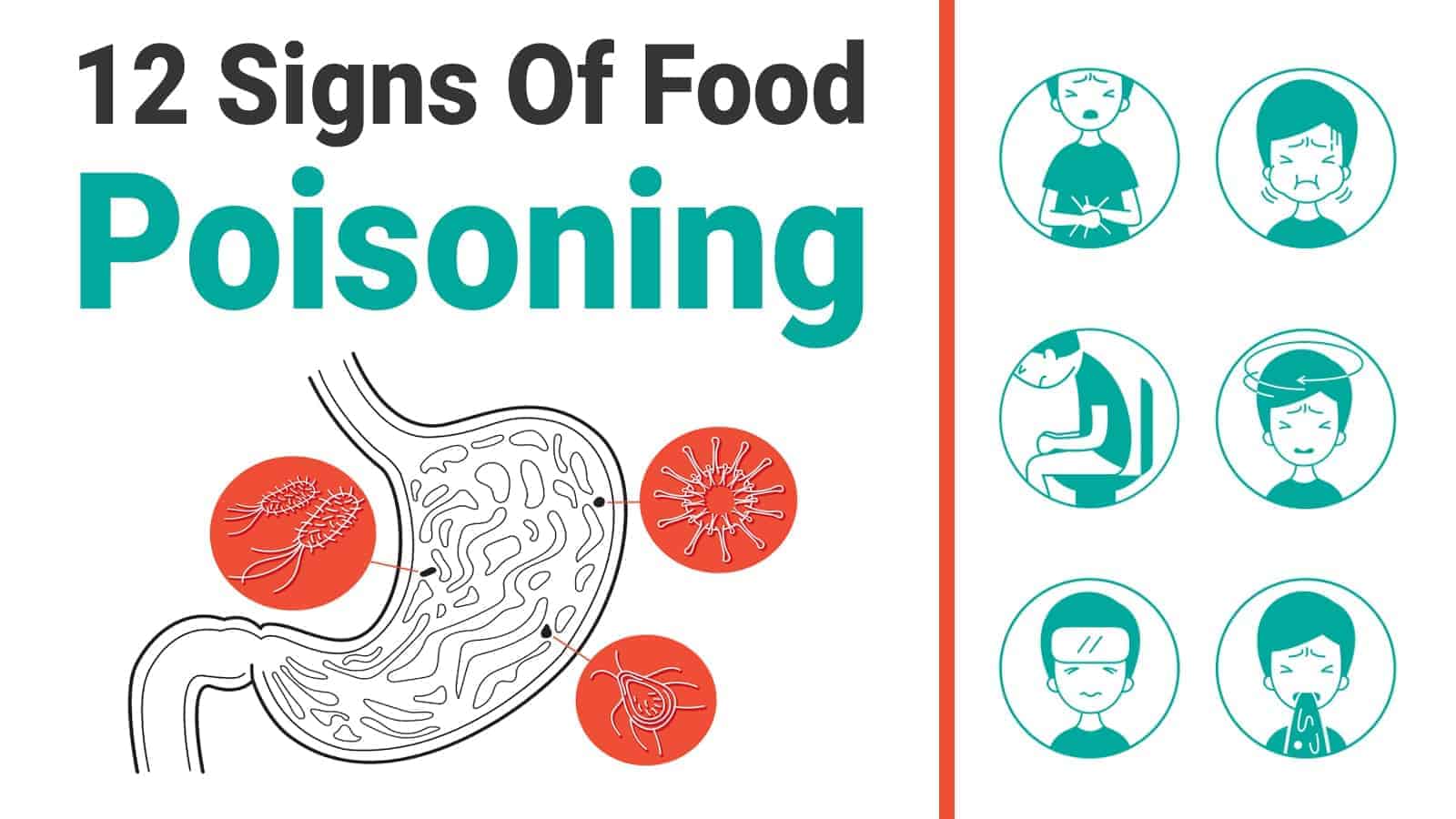Food poisoning is a common but unpleasant experience. If you believe you have it, you are not alone.
The CDC notes that one out of every six (about 48 million) Americans suffers from food poisoning yearly. The main sources of this prevalent discomfort are bacteria, viruses, and parasites that thrive in particular food and water sources. Transferring these harmful microorganisms to humans happens when proper sanitary or cooking requirements are unmet.
By religiously observing simple common sense procedures in food preparation, most food-borne illnesses can be prevented. Avoid contamination by keeping your hands clean when preparing food, washing them often when moving between raw and cooked foods. Use clean utensils and surfaces such as cutting boards. Cook foods to a safe temperature and refrigerate unused or leftover foods quickly. If in doubt, throw it out!
If you do find yourself suffering from this uncomfortable malady, there are a variety of food poisoning remedies which may help ease your symptoms and shorten your recovery time. For anyone afflicted, this is great news.
Twelve Signs of Food Poisoning
How can you tell if you’re experiencing the symptoms of food poisoning? Some food-borne illnesses may begin manifesting almost immediately, while others may not become apparent for days, or longer. As soon as symptoms begin to be identified, you can take appropriate actions to alleviate them. Here’s what to look for:
- 1. Abdominal cramps
- 2. Nausea
- 3. Vomiting
- 4. Diarrhea
- 5. Stomach pain
- 6. Low-grade fever
- 7. Dehydration
- 8. Headache
- 9. Abdomen tender to touch
- 10. Weakness
- 11. Loss of appetite
- 12. Fatigue
Which Are the Most Common Symptoms of Food Poisoning?
The first four symptoms on the list are the most common. Some bacteria, such as Staphylococcus aureus, may manifest cramps, diarrhea, and nausea as soon as thirty minutes after ingestion. This bacterium thrives in meats, eggs, and dairy products that are not properly refrigerated.
On the other end of the time spectrum, travelers in developing countries may be susceptible to the much rarer hepatitis A virus, which may not manifest for up to fifty days. This virus generally originates from contaminated water coming in contact with food and drink sources.
Although most of what is referred to as food poisoning does not result from actual poisons, some foods such as some mushrooms, shellfish, or seafood harvested from contaminated sources, can contain hazardous toxins. Although they may cause symptoms similar to common food poisoning, ingesting these toxins should be considered an emergency and treated as soon as possible by professionals.
Other food safety issues, such as the safe transport and storage of food to outdoor events, should be carefully considered. Some groups of people, such as children or those suffering from compromising illnesses, can be more at-risk for contamination. Awareness is key for the safety of yourself and others.
Two Guidelines for Reducing Symptoms of Food Poisoning
If you begin to suffer the symptoms of food poisoning, there are several steps you can take to help ease your suffering, along with natural food poisoning remedies to settle and cleanse your digestive system. Even without treatment, these stomach issues should resolve themselves in 24-36 hours. Proper treatment can speed up the process. Some of the steps include:
1 – Stop eating if you suspect food poisoning.
Avoid eating solid food for several hours to allow the stomach to settle. Give your body time to deal with whatever contaminant is affecting it. When you do begin to eat again, start with bland foods that are easy on the digestive system, such as:
- Saltine crackers or plain toast
- Ginger ale or other soda without caffeine
- Potatoes or other boiled, bland vegetables
- Rice
- Oatmeal
- Diluted juice or sports drinks so long as they don’t cause further upset.
2 – Stay hydrated as you recover.
Drink small sips of water or suck on ice chips to avoid dehydration. Especially if you suffer from vomiting and diarrhea, dehydration can become a serious health issue that must be immediately addressed.
Avoid some foods and drinks. Some foods and drinks are difficult to digest and should be avoided until symptoms disappear. Some things to avoid include:
- Alcohol
- Caffeine
- Dairy products
- Fatty or fried foods
- Spicy food
Eight Food Poisoning Remedies to Try at Home
Several food poisoning remedies will help ease symptoms and quicken recovery time. Be careful about taking over-the-counter medications. Some of these stomach meds may add to irritation or mask more severe symptoms.
Natural remedies treat symptoms in a variety of ways. They can soothe the digestive tract and restore a proper pH balance. And once you are recovering from food poisoning, you must eat foods that will help relax your stomach as it heals. If you are suffering from food-borne illness, here are some possible remedies for your discomfort.

1 – Ginger can ease your stomach during food poisoning
Ginger has been used to treat stomach disorders for millennia. During illness, ginger’s therapeutic effects improve the absorption of essential nutrients. This popular herbal supplement can give almost instantaneous relief from symptoms such as nausea and vomiting.
You may eat ginger raw, or boil a grated teaspoon in water and add a bit of honey. Drink this soothing tea often to help alleviate nausea and soothe the digestive tract.
2 – Apple cider vinegar
Another potential remedy, apple cider vinegar, balances stomach acid with its alkaline properties and is also antibacterial. It can attack toxic microorganisms as it soothes the stomach lining, bringing quick relief.
If swallowing several teaspoons of undiluted vinegar doesn’t appeal to you, try combining 2 tablespoons with a cup of hot water before eating. You’ll be amazed at how quickly this remedy can settle many stomachs upsets.
3 – Lemon
Lemon is anti-inflammatory, anti-bacterial, and anti-viral. It is another easy home remedy that can bring quick relief while naturally cleansing your entire digestive system. The acid in lemon can kill invading bacteria, placing it among the top food poisoning remedies.
Add honey to a teaspoon of fresh lemon juice several times a day to relieve symptoms. Or take the remedy in tea form by adding it to warm water and sipping throughout the day for maximum cleansing.
4 – Basil leaves
The anti-microbial properties of basil soothe abdominal discomfort. As one of the food poisoning remedies, it helps destroy the culprits causing the discomfort. Basil also contains powerful antioxidants to help build up and restore compromised immune systems.
There are several ways to take basil medicinally. Basil juice extracted from several fresh leaves may be added to a tablespoon of honey and drunk several times a day. Or add a few drops of basil oil to four cups of water and sip throughout the day.
5 – Garlic
This popular herb has been used for more than just flavoring food since ancient times. Garlic contains powerful anti-bacterial, anti-viral, and anti-fungal properties, making it an effective treatment. It also relieves diarrhea and abdominal cramping.
Eat one fresh garlic clove, or add the juice or water. You can even mix garlic and soybean oil and rub it on your stomach after eating. It may be a little smelly, but it’s worth it.
6 – Cumin
Take cumin to ease abdominal cramps and inflammation. The herb also has potent antimicrobial effects and contains several key nutrients.
Boil one teaspoon of cumin seeds in a cup of water and drink it twice daily. Fresh coriander juice may also be added for flavor. Or use cumin seeds, sea salt, and asafoetida to create an herbal drink to cleanse the digestive system and relieve symptoms.
7 – Honey
Raw honey has anti-fungal and anti-bacterial effects. It can also help control excess acid in the stomach. Honey is also known for its antioxidant and healing properties. It’s easy to combine honey with many of the above remedies to make them more palatable. Add honey to tea or take a spoonful to aid in recovery and relieve symptoms.
8 – Fenugreek seeds with yogurt
Fenugreek is a lesser-known herb that smells and tastes like maple syrup. It also has several properties that fight against toxic microorganisms. Fenugreek can soothe an upset stomach and improve appetite.
The live cultures in yogurt make it helpful in restoring balance in the digestive system. Add a teaspoon of fenugreek seeds to a tablespoon of plain yogurt. You don’t have to chew the seeds. Swallow them with the yogurt. The combination can provide immediate relief from vomiting and stomach pain.
Final Thoughts on Food Poisoning and When to Seek Help
If initial symptoms are not lessening or more severe symptoms develop, seek medical attention. Some more severe symptoms may include:
- Persistent high fever
- Blood in vomit or stool
- Tingling or weakness in limbs
- Symptoms lasting longer than a day or two
- Rapid heart rate
- Stiffness in the neck or headache
You can lessen frequent stomach upset by avoiding foods known to be toxic. Many people consume a variety of toxic foods without realizing it. You may need to examine your diet more closely if you have ongoing issues.
Some people with pre-existing conditions may experience food poisoning-like symptoms when eating certain foods. If you have a condition such as fibromyalgia or heart disease or are undergoing cancer treatment, you may experience some food sensitivities. Monitor any symptoms carefully and consult your doctor for advice.



















